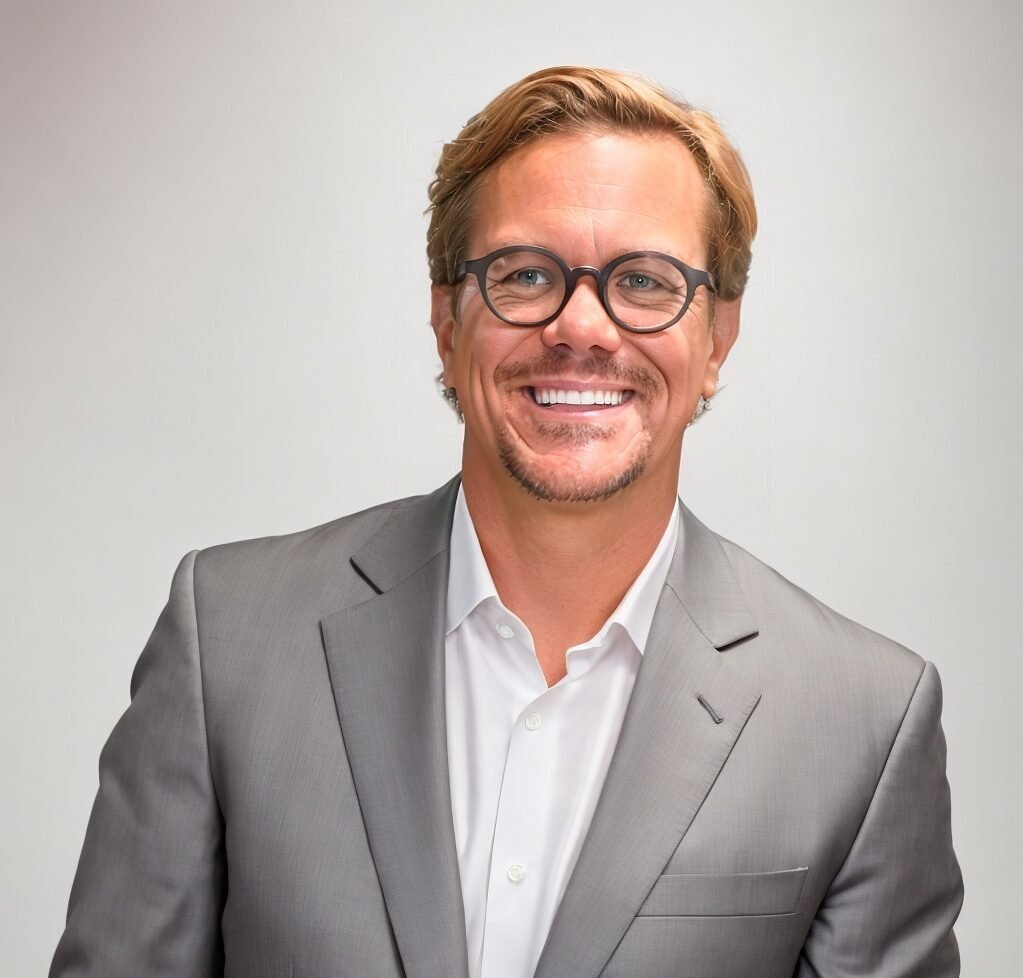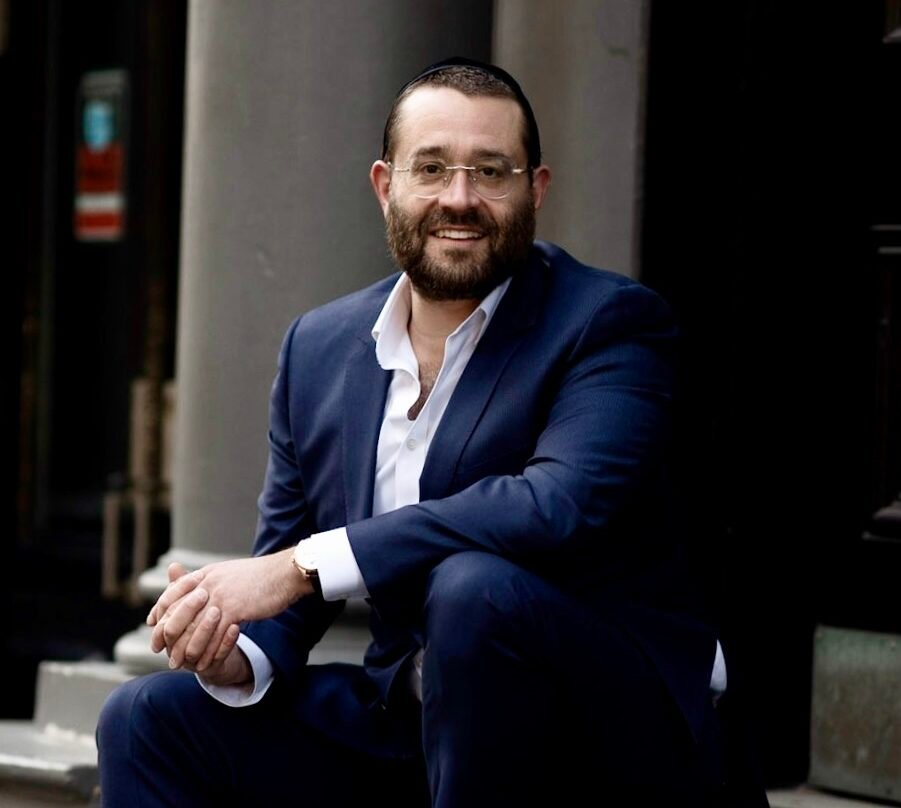I recently went one on one with Curtis Matsko, CEO of Portland Leather Goods.
Adam: Thanks again for taking the time to share your advice. First things first, though, I am sure readers would love to learn more about you. How did you get here? What experiences, failures, setbacks, or challenges have been most instrumental to your growth?
Curtis: Well, that is a book or two right there. I always like to rephrase questions to figure out what is the real point of the question so I can give the most authentic answer. Your audience may want to know who I am and why they should care.
I am the youngest of four boys from Montana, overly competitive, class clown, jokester, lover of stories, kind, confident, and overly energetic in everything I do. I am a true entrepreneur, which means optimistic; I think we choose our own regrets, our own successes. Everything in my life, and I mean everything, helped me become the person I am now and I like that person.
In the last six years, I have grown my companies to more than $100,000,000 a year and have surrounded myself with some of the most amazing people in the world. And for me, the game has slowed down. I see business more clearly. I see life more clearly and this is all something that could never have happened without those amazingly fun, challenging, unpredictable, crazy life experiences.
Adam: In your experience, what are the key steps to growing and scaling your business?
Curtis: Scaling a business. That is what I do. That’s what I love to do. So for me, I have a formula to grow and it seems simple… double each and every year. That is not just a goal, that is what we do. Hurdles, problems, difficulties… yes. Excuses, no. Every one of my employees knows it, we are going to double again this year.
Let’s break it down.
When you can bring in a million dollars, great, but it is time to scale and then scale and then do it again. At one million in revenue, when you double each year, you are only seven years away from having a $100,000,000-a-year company.
It’s math.
1, 2, 4, 8, 16, 32, 64, and boom you are there. Simple, right? But how? Four things to keep in mind.
Number one, you have to be in a big enough boat in a big enough pond. If you’re gonna scale and grow to the next level you have to be in a market that is scalable. There has to be people with enough money in that market you choose who may want to buy your particular product if you can align the planets for them. So if you’re not in a big enough market, if you’re in too niche of an arena, if you are being too clever by far, you absolutely need to make some big changes.
Number two, you have to have a great offer. It is not that the importance of the offer is downplayed by most entrepreneurs and business leaders but I would argue that 9 times out of 10 times it is ignored. Everybody seems to think everything revolves around the details of the product. Product specs are wonderful, but people are busy, overloaded with millions of product options with millions of details. But if you want to grow, you need to differentiate in a simple, relatable way. What is your offer? How can you make it so people are afraid to miss out on your offer?
Three already? Well after the offer, if you want to scale, you must make money right from the start. If you can’t pull a profit you are in trouble. Of course, things that fail in the small scale will fail at scale but it is more than that. You need the money first and foremost to bolster your confidence. Problems, misfortunes, and nay-sayers will pelt your company. To help weather the storm of negative interference you can look to the profit as a mental crutch. But you also need increasing amounts of money to roll into more inventory, better people and higher paid salaries, and more advanced software. Scaling is pricey, you need the profit.
Four is to fail quickly. Fast growth is about speed and problems but as with most things, there is a twist. My attitude is not only do you need to solve problems quickly but you need to create problems quickly as well. Any positive change for you or your business is going to be hard, which can also be seen as hurdles, problems, and mistakes in need of correction. Launch sooner, fail sooner, and you won’t waste the weeks and months that are so precious when you are scaling quickly.
Love failure. Cheer on mistakes. Then evaluate and hit it again. Fast. Soon. Now.
A little story here. A friend of mine went to college to study art. His first professor told the entire class that they knew nothing and that the first 10,000 pieces of art they created would be terrible. The professor told them to get over themselves and get busy. My friend made it a goal to suck quickly. He did drawings, paintings, and sculptures out of anything he could find laying around. He did at least 20 pieces a day, seven days a week. That’s 10,000 pieces of art in less than a year and a half. He realized he sucked but he was getting better.
He is not sure what happened to his classmates but today he is a well-known, very successful painter… and his large pieces sell in the higher six figures and they sell out almost immediately. To scale, you have to try quickly, suck often, and get better and better. While everyone else is planning and worrying you need to be acting.
Adam: What do you believe are the defining qualities of an effective leader?
Curtis: Now, I know you are a leadership guy, and though I am a leader, I do not primarily see myself as one.
I am an entrepreneur. I come up with ideas and then create something that did not exist before I thought of it. The combination of creativity and sheer will powers me to put things out into the market in an attempt to create a profitable company. In order to do that I need great people. I surround myself with others who are constantly striving to learn and grow along with me and the company. I can tell you what qualities I have as an entrepreneur.
Those things are unflinching optimism, unjustified confidence, and the ability to energetically see things out for long periods of time. Some call that discipline while I call it obsession. Tomato, tomorrow! However you define the terms.
But success breeds success. As more people jump on board, as more people begin to grow, they create a community and a team that becomes so freakin’ awesome that others want to join and learn. Momentum. Snowball. If that is leadership, I’ll take it. Print it.
Adam: How can leaders and aspiring leaders take their leadership skills to the next level?
Curtis: Always be learning and always be teaching.
I get up every morning and immediately head downstairs for a few of those quiet hours where I can read and listen to whatever area I am interested in lately. I scribble notes that I will never read and formulate ideas. I fill my mind up with something new. Then you have to have a platform to apply that knowledge.
Throughout my day, opportunities arise for me to apply thoughts, connections, and lessons that were only theories mere hours before. Some are more applicable to me than others but it is the application that proves them out. Without application and proof, meaning degrees of success, they are still just theories. But we humans love success and we like to do things that worked once over again.
When I learn something works I want to share it. I want to teach it. I explain over and over again that this is how I view it, this is why I think it works. Others pick up on that. If you want to learn something, teach it.
Adam: What are your best tips on the topics of sales, marketing, and branding?
Curtis: Again, learn how to fail. And do it now.
If you want to know about sales, then get out there and do sales. Get a job and start grinding.
You learn by repetition, action, failure, and an occasional success. If you want to learn about marketing then get out there and do it. Try it. Fail. Learn that you are not good at it and need help and then keep trying.
Be humble. Be hungry. Be curious.
Reading books and listening to podcasts about secrets and tips do not work in a vacuum. You need a daily platform, a daily application, for which to test them out. Stop pretending you are good at things and that you know everything and get out there and fail. Start failing now. Get beat up a bit and realize that no one is a natural at anything in this world and that it takes time and effort to get good.
Celebrate each time you fail. You did what others did not do and you are now closer to your goal of being great.
Adam: What is your best advice on building, leading, and managing teams?
Curtis: We live in a world of the finite. Economics is about scarcity. There are limited numbers of many of the things we want. Welcome to life. Scarcity means making decisions, choosing options.
This is going to sound cliche, but the real key is getting past the cliche-sounding answer and getting to the real truth of building, leading, and managing… hire the best people.
Wait! Everyone who is reading this right now is being bombarded with mental lists of all the problems of hiring the best people! It is too hard, expensive, time-consuming, and in every other way unrealistic.
Tough.
Business is a long haul. Let’s say you are on the 7-year plan to get to $100,000,000 that I outlined earlier. You need leaders. Find one every quarter and one superstar each year. That is 28 hires, seven of whom are absolutely amazing. Because life happens some will be gone after seven years. But you should still have 5 superstars and 20 overall amazing leaders.
They should be doing the same. Constantly looking, constantly interviewing. They create a team under each of them and you have grown amazing teams, plural, which can work, grow, adapt, and surprise the hell out of you on a daily basis.
I was advising a CEO recently and I told him he had to hire better. He said, “But you have already taken all the best people in the city.” First of all, thanks. Second, the only way to find them is to start looking, keep looking, and never stop growing.
Adam: What is the single best piece of advice you have ever received?
Curtis: That there is no single answer for anything or anyone.
Actually, I am going to answer that as I have most of your questions, in a roundabout way.
There is no single piece, no secret, that comes to mind with that question. But every day of my life advice comes back into my mind when I need it. Something I have learned, remembered, or was taught. And here is the funny thing, the advice always comes from someone I respect and admire and they never remember giving it to me.
Dozens of times I have been speaking with friends and mentors and told them something they said, maybe in passing and maybe from a long conversation, something that has really helped me. They are always happy they helped but never remember when they said it or why.
We take what we want from conversations. We take what we want from life. So I would suggest choosing better friends, better associates, better mentors. Hang out with the best people and the advice you receive, habits you grow, and ideas you generate will slowly get better and begin compounding on themselves.
And like magic, many things in life will become easier.









